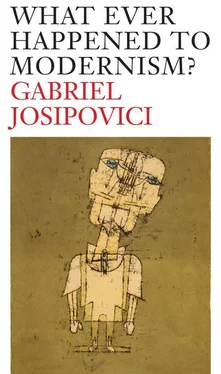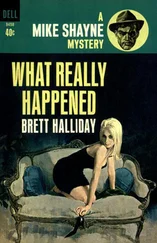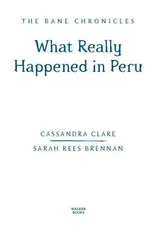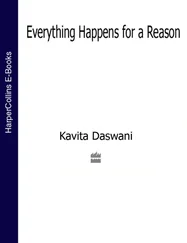As for Stravinsky, his dialogue with the past goes back to his first ballets, though it was perhaps only with Pulcinella that he became conscious of what this involved. ‘ Pulcinella was my discovery of the past’, he later wrote, ‘the epiphany through which the whole of my late work became possible. It was a backward look, of course — the first of many love affairs in that direction — but it was a look in the mirror too.’ And then, echoing Eliot's ‘Bad poets imitate, good poets steal’: ‘People who had never heard of, or cared about, the originals, cried “sacrilege”: “The classics are ours. Leave the classics alone.” To them all my answer was and is the same: You “respect”, but I love.’ Stravinsky collaborated with Cocteau on his oratorio, Oedipus Rex (1927), but, as he told Robert Craft later, Cocteau, with his superficial love of the ‘dramatic’, became an embarrassment. Stravinsky instinctively sensed the monumental qualities of the play, its subordination of character to fate, and where Cocteau, in his interspersed narration (‘Il tombe. Il tombe de haut’), tries to milk the pathos of Oedipus' tragic discovery that he is the polluter, Stravinsky's music wonderfully keeps alive Sophocles' sense that if this is a disaster for Oedipus it is nonetheless the salvation of the city of Thebes.
Stravinsky is attuned to the double movement of Greek tragedy, its ability to show personal disaster and a kind of comfort coexisting in Oedipus Rex , because that is how he had seen things from the start. Le Sacre du printemps is so powerful because it recognises that the renewal of the earth can only come at the cost of sacrifice — it recognises it in the ‘scenario’, but even more in the music, whose pounding rhythms are at once a sign of doom and of renewal. Yet it is perhaps in Les Noces that this sense of life and of what kind of art is required to body it forth is most fully realised. It is so much greater a work than the many nineteenth-century dramatisations of pastoral peasant weddings because it recognises the enormous cost of marriage as well as its enormous rewards. As in all of Stravinsky, plangency and celebration are one, as first the bride's friends mourn the cutting of her hair and her having to leave her family, and then celebrate her entry into a new union, a new home.
As we leave the concert hall where we have witnessed Les Noces , we sense that we have experienced an event, a praxis , which has renewed our sense of what it means to be human, that it has revealed to us the pain and the joy of life and how the two are inextricably intertwined. But even if there are no masks and no ‘stage action’ Stravinsky is at pains to remind us that this is not a praxis , an action, but an imitation , a mimesis of an action. Different voices ‘speak for’ the different protagonists at different times, thus allowing us to identify not with the characters so much as with the action — a device Stravinsky had already used in his wartime pieces such as Renard . It is well known too that Stravinsky had enormous difficulty in deciding how to orchestrate the piece. As the war dragged on he tried combination after combination, but nothing would quite answer to his needs. At last, shortly before the first performance in 1923, he hit on what he felt was the right solution: a small orchestra in which four pianos take on the role of the percussion. At the end the four pianos, two crotales and one bell come together in a fortissimo chord. The choir stops. The solo unaccompanied bass chants the opening modal theme in its syncopated form — ‘Dear Heart, Dear Wife …’ The phrases are punctuated by the tolling of the ‘bell’ chord on every eighth beat. The bass voice dies away and the syncopated theme is taken over by the instruments. A lesser composer (even a fine composer like Messiaen) would have given us church bells. Not Stravinsky. The sound of those four pianos, wonderfully imitating but never pretending to be church bells, is a fitting climax to one of the greatest of all Modernist works.
Since Oedipus Rex there have of course been numerous attempts to write operas based on ancient tragedy, from Henze to Birtwistle. Most of these fail because they are essentially taking a nineteenth-century form and trying to accommodate it to ancient modes. They have not learnt the lesson of Stravinsky's radical rethinking of what can constitute music theatre. One composer who has is Luigi Nono, whose Prometeo , subtitled ‘a tragedy of hearing’, was first performed in 1984. We had to wait twenty-four years for it to arrive on these shores: the first English performance took place in London in May 2008.
Nono was a Venetian, much influenced by the spaces of San Marco and the way composers like Monteverdi and Gabrieli used them, but influenced too by his Marxism, his friendships with the other major composers of his time, such as Boulez, Berio, Ligeti and Kurtág, all highly cultured and deeply thoughtful men, and by his wide reading in European literature, especially Hölderlin. He understood that to write a traditional opera today is to court disaster. Prometeo has no scene, no stage action and no protagonists. Nono transforms the space in which the piece is to be played into a soundbox in which musicians and audience are both placed. Using fragments of texts from Aeschylus' Prometheus Unbound , Hesiod and Sophocles, in Greek, with fragments of Hölderlin and Walter Benjamin, in German, the words broken up into syllables dispersed among the singers, four different orchestral groupings and complicated electronics which make it impossible to locate the source of any of the sounds, he asks us to listen. Ascolta (listen) is a word frequently repeated by the singers and which we can pick up out of the web of Greek and German and Italian syllables. To listen properly is what the opera teaches us to do. This means staying in the moment, staying with the long, long silences, calming down our desire for plot and resolution. But this does not mean that the work is abstract, any more than Picasso's 1912 collages were abstract. It deals with Prometheus and with the sufferings of humanity at the hands of cruel gods. But it does not preach any more than the Picasso collages or The Waste Land do. Living through the two-and-a-quarter-hour-long experience leaves us, as we are left at the end of Oedipus at Colonus , with a sense of sorrow and of wonder and, at an even deeper level, a sense of having bathed in the waters of life.
13. It Took Talent To Lead Art That Far Astray
Here are three quotations:
He spoke sententiously, breaking off abruptly. I had an uneasy feeling, unlikely as this would be, that he might be about to ask me to act as best man at his wedding. I began to think of excuses to avoid such a duty. However, it turned out he had no such intention. It seemed likely, on second thoughts, that he wanted to discuss seriously some matter regarding himself which he feared might, on ventilation, cause amusement.
If it had not been such an intolerably hot evening, Bernard would have suggested remaining in their seats in the interval. He could see no point in a meeting between Eric and Terence, though he had never hidden his relationships from either of them. They would, he felt sure, dislike one another and he dreaded a little his own acquiescence in their criticisms. They would both be so perfectly right, and they would both so perfectly miss the point.
‘Jake,’ said Madge into my shoulder, ‘don't leave me.’
I half carried her to the settee. I felt calm and resolute. I knelt beside her and took her hand, brushing her hair back with my hand. Her face rose towards me like a lifting flower.
Читать дальше












